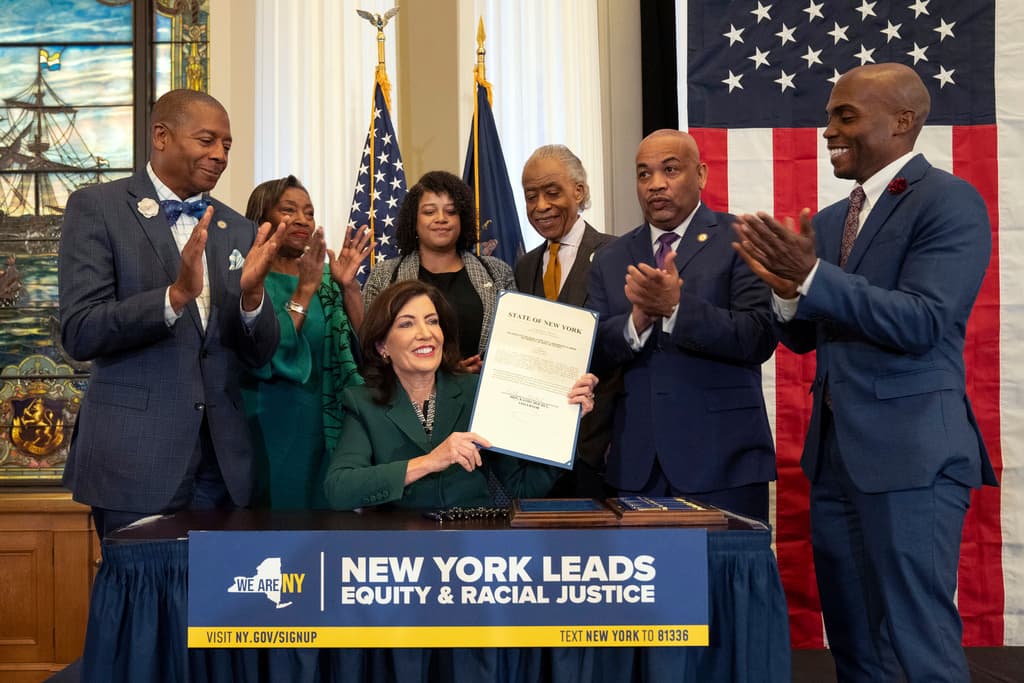Can New York, Facing Billions of Dollars in Budget Gaps, Afford Reparations?
It’s one of several questions the state’s commission will face as it meets this year with aims of addressing slavery and its ‘lingering negative effects.’

As the clock begins ticking for New York’s reparations commission to create a report of recommendations to address what Governor Hochul calls the state’s “legacy of slavery” and its “lingering negative effects” on New Yorkers, one question will be whether the state can afford forms of paid reparations.
Please check your email.
A verification code has been sent to
Didn't get a code? Click to resend.
To continue reading, please select:
Enter your email to read for FREE
Get 1 FREE article
Join the Sun for a PENNY A DAY
$0.01/day for 60 days
Cancel anytime
100% ad free experience
Unlimited article and commenting access
Full annual dues ($120) billed after 60 days

